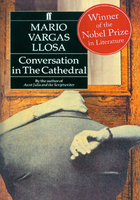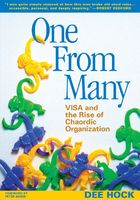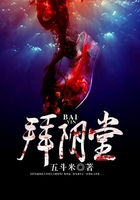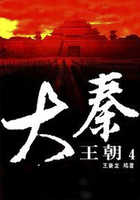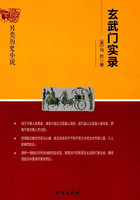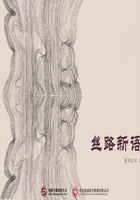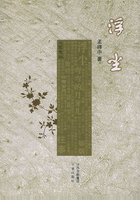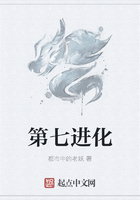12:30 p.m.
The Situation Room, United States Naval Observatory-Washington, DC
"Should I be in on this?" Michael Parowski said.
Susan nodded. "I want you there."
They were on the ground floor of the New White House, walking briskly toward the Situation Room. Kat Lopez trailed two steps behind them. Two Secret Service men trailed two steps behind Kat.
"What do you want to tell people?"
Susan shrugged. "There's no need to tell anyone anything, or even announce your presence. Kurt Kimball often kicks some people out if things go to a high level, but otherwise, no one would be shocked to see a sitting Congressman in there."
"When will we tell people?"
Susan glanced back. "Kat?"
"We've got a tentative date of Wednesday, nine a.m. We're putting together a press conference. If the weather looks good, we'll do it on the back lawn. If not, we'll do it in the communications room. Does that give you enough time, Congressman?"
"Two days? You'd be surprised at the amount of stuff I get done in two days."
They passed through the open double doors of the Situation Room. Two more Secret Service men flanked the entryway. Big, bald Kurt Kimball, Susan's National Security Advisor, was already inside, standing in front of a large flat-panel screen mounted on the wall. He was talking to a young tech guy and holding a remote control in his hand.
The place was filling up. Kurt had several staff members in the room, and his two top intelligence analysts, both of whom he'd brought over from the RAND Corporation as soon as he arrived.
Trish Markle, the new Secretary of State, was in a seat facing Kurt, and talking to two of her young staff members. Trish had been in her job six weeks already. She had been an Under Secretary at the State Department when Mount Weather happened, and Susan had simply promoted her to the top slot. Trish was forty-seven years old. She had spent long years as a government bureaucrat-maybe too many. So far, she was doing an unremarkable job as Secretary.
"Kurt," Susan said, cutting through the background chatter.
He looked Susan's way, then came over. He shook hands with Congressman Parowski. "Mike, good to see you. I hear there's a big announcement coming."
Parowski glanced at Susan. "Interesting. I just heard about it myself."
Kimball smiled. "Word travels fast down these hallways."
"Kurt," Susan said, "if you're ready, I want to get started. I feel like we're already behind the eight ball on this. There are huge gaps in my knowledge."
"I'm ready. But people are going to continue to straggle in while we're talking. And the analysis we have is very, very preliminary. Mark Swann just finished uploading the last of the files to secure servers maybe twenty minutes ago."
"That's okay. I don't need all the details. Just get me, and everyone else in this room, up to speed about the overall threat."
Susan sat down at the head of the long conference table. Kat Lopez stood behind her and Mike Parowski sat to her left. For a second, Susan remembered how she used to feel in this room. In the early days, after the June sixth attacks, and during the Ebola crisis, she felt overwhelmed. Everything almost took on a surreal quality.
She had dropped into the Presidency as if from outer space. There were a lot more men around her in those days, and a lot of military men. It made her paranoid. The former President had just been assassinated, in part by military men. When the men stared at her, they looked like sharks eager to feed upon a tender morsel.
Things were different now. She was the quarterback. The people around her were her people-either hand-picked by her, or people from the previous crew chosen to stick around, in many cases vetted by Kurt Kimball personally. She liked the team she had.
"Okay," Kurt said now. He raised his hands in the air. "Okay, everybody, let's listen up. We've got a lot of ground to cover, and more is coming in all the time, so we're going to get started. Anybody who doesn't belong in here, you know where the door is."
He looked at Susan. "Madam President, thanks for coming."
She made a spinning wheel motion with her hand. Let's go.
Behind Kurt, a photo of the Black Rock Dam appeared. It was a giant, made of gray concrete, looming high above the camera angle.
"Okay. All of you know by now that the floodgates opened early yesterday morning at the Black Rock Dam in western North Carolina, near Great Smoky Mountains National Park. Millions of cubic feet of water were released before workers could close the dam again, inundating a resort and several towns downriver from the dam. Preliminary estimates are that a thousand or more people died in the sudden flooding, and there was more than a billion dollars in property damage. The Black Rock resort, three miles south of the dam, was completely destroyed."
Next to the image of the dam a new photo appeared. It was of a large Asian man in an orange jumpsuit, his arms and legs shackled as he was led from the back of an SUV. "This is a man identified as thirty-two-year-old Chinese national Li Quiangguo. We have no idea if that was his real name. We suspect that it wasn't. We do suspect he was a Chinese intelligence agent."
"Was?" Susan said. "Wasn't? Why are you putting him in the past tense?"
Kimball looked at her. Then he looked at Kat Lopez. "Okay, somehow that little piece of news didn't reach you. Li Quiangguo is dead. There was an incident at the FEMA camp where Li was being held. Luke Stone and another operative were there to question him this morning, on your orders."
Susan nodded. "Yes, I'm aware of what my orders were."
"No one is quite sure what happened because we haven't talked to Stone yet, but apparently the prisoner soiled himself during the course of the interrogation."
"Wonderful," Susan said.
Susan thought of Luke Stone, and the idea of bringing him back for this operation. She wondered for a second if maybe it would have been better to let a sleeping dog lie. "How did that happen?"
Kimball shrugged. "People become afraid during aggressive interrogations. Afterwards, Stone told the camp director that the subject had been cooperative, and he and his team were going to investigate a lead Li had give them. Rather than have Li sit around with poop in his pants, the director decided to let him have a hot shower. This is also a pretty standard operating procedure. If a subject gives you something, you give them something in return. The reward makes it more likely they'll give you something else.
"Only they allowed Li into the shower by himself, with two guards standing outside the door. They also removed his manacles at the wrists and ankles. It turned out he had a powerful dose of cyanide embedded in a capsule inside a false tooth in his mouth. He pulled out the tooth and swallowed the contents of the capsule within seconds of when the water started running. He began experiencing seizures within a minute and a half. He was dead inside four minutes."
"Was he tortured?" Susan said.
"There are no marks on his body, except ones consistent with the small amount of resistance he put up when he was arrested."
"Is that what I asked you?" Susan said.
Kurt shook his head. "I think you should ask Luke Stone if the subject was tortured."
A low murmur went through the room.
"What's next?" Susan said.
Kimball moved to another slide. It showed an image of a low-slung red brick warehouse building along an industrial road. "Li Quiangguo gave Stone and his team information that led them to this warehouse. Inside the warehouse, they found evidence of the import-export business which was Li's cover story in the United States. They also found evidence that Li was compiling intelligence about a list of potential cyber attack soft targets in the United States. That list is as long as your arm. It contains extensive data about each target, and was kept on three CD-Rom disks in a locked drawer in the locked office of the warehouse. The information was kept nowhere else that we are aware."
"CD-Rom?" Mike Parowski said. "Why would he store it like that? It's twenty years out of date."
Susan was a little surprised that Mike chose to speak. She wanted him to know what was going on, but she also had expected he would keep a somewhat low profile.
Kimball pointed at him. "You win the prize. Best question so far. We're guessing right now that Li kept his files on CD so that no American government analysts, should they become suspicious of his activities, would be able to access the information. We can only access information kept on networked computer systems. We can't access information kept on a disk locked away in a drawer."
Parowski persisted. "So how does he transmit the information to his handlers, who I assume are in China?"
"He was an importer," Kimball said. "I'm sure he knew that we can intercept almost any web traffic originating from, entering, or passing through the United States. He probably also knew that with agencies like NSA, their real mandate is to analyze the web traffic of foreigners, especially questionable traffic associated with a place like China. His cover story was a good way to circumvent this.
"We've done some initial investigation and found that his company was sending packages to China on a regular basis-paperwork, manifests, payments, order forms, and the like. He had an account with DHL Worldwide, as well as a few Asia-based courier services. It's very likely he was sending the data in small batches as he acquired it, possibly on disks that were mostly full of dummy information. And it's likely he compiled the data for himself on those three CDs, more or less in one place, in case he needed to refer to the information at a later date."
"Would you say that was a lazy way to store it?" Parowski said.
Kimball shrugged. "I think it would be considered less than optimal. I'm sure his handlers wouldn't be happy to learn he was holding onto intelligence in that way. I'm sure he realized that, and it's at least part of the reason why he's dead now. Then again, I'm sure he felt the chances of someone stumbling upon that information were quite low, which they were."
Susan held up a palm.
"Do we have the names and addresses of the places he was sending courier shipments?"
"Sure. But there are about two dozen of them spread out in Hong Kong, Guangzhou, Beijing, in a few of the new industrial districts where fly-by-night manufacturers sprout up like mushrooms and disappear just as quickly, as well as in the mountainous region on the border of China and North Korea. It's anyone's guess, but probably most of his communications were with legitimate companies, as far as that goes."
"Do we know who is who?"
Kimball shook his bald head. "Our infiltration in China is not nearly as deep as we'd like. It was a closed society for a long time, and they're still suspicious of outsiders. They keep a close eye on both Chinese ex-patriots coming home from the West, and Chinese-Americans born in the United States who are visiting. It's hard to send agents that can blend into Chinese society."
"But we trust our intelligence?" Susan said. "We feel confident that China was behind the dam attack, and that Li Quiangguo was sending the information he gathered to China?"
Now Kimball nodded. "I think we can say with ninety percent certainty that China was behind the dam attack. We don't fully understand their reasons for it, and I believe the extent of lives lost and damage was likely a mistake. As everyone in this room probably recalls, five months ago an American destroyer, the USS Angel Fernandez, was on night maneuvers in heavy weather in the Sea of Japan. It collided with a large Chinese fishing trawler. The trawler was rent in half and sank within minutes. Despite the efforts of the destroyer's crew, they were unable to rescue any of the Chinese fishermen. It's believed that twenty-seven men went down with that ship.
"The disaster was a public relations nightmare for the Communist Party. They looked weak and impotent in the face of widespread calls for war. The situation led to a shake-up in the Chinese leadership, and the installation of the new President, Xi Wengbo. Xi came in promising to check what he called American aggression in Asia. Personally, I think they opened that dam as part of Xi's new program. They were testing their ability to pierce our security and take down our infrastructure, possibly in preparation for larger attacks. I think they were doing it in retaliation for that collision at sea, and also to rebuke us for our aerial presence defending Vietnam in the South China Sea."
Kurt paused, and seemed to think about what he was saying.
"However, that's speculation on my part. What's one hundred percent clear is that Li was sending the data he gathered back to China. Who has been using the data and why, I think we still don't know for sure."
Now Susan persisted. She felt like Kurt was talking around the issue, a rare performance for him. He was usually to the point, and he took the shortest way to get there. "So we're sure it's China," Susan said.
"I'd say yes, we're sure."
Susan took a deep breath.
"Get me the Chinese President on the phone."
*
Half an hour after Susan made the decision, aides on both sides were holding the line open. Susan barely had time to eat half a turkey club sandwich and choke down a cup of coffee in her study.
"Can we please get some better coffee in this place?" she said to Kat Lopez as they descended the grand staircase. "I don't know what's happened to the coffee."
She realized she was nervous about talking to Xi Wengbo, and it was making her irritable.
"It's just logistics," Kat said. "We're feeding a lot more people here now. We brought in an industrial food vendor."
Susan stopped halfway down the stairs. She turned and gave Kat her hardest look. "Kat, have you read the latest edition of Fortune magazine? To hear them tell it, I'm currently the third most powerful person on Earth, after the Pope and Vladimir Putin. What would Fortune think if they found out their current number three can't get a decent cup of coffee no matter how hard she tries?"
Kat had stopped, too. She was a serious person, a literal person, and was not in the habit of answering rhetorical questions. Susan had hired her because she was ambitious, she was hard as nails, she could weather the storms that seemed to face them on a daily basis. But she did not have a flair for the finer things the way Richard Monk had. She didn't see the need for them. She and Susan had tripped over this again and again during Kat's time here. You could work hard, be tough, be in the fight, and still drink good coffee and sleep on a luxurious bed. Kat didn't seem to understand this.
They started down the stairs again. Susan was nervous. She knew that about herself. It was out of character for her to take Kat to task for something as mundane as coffee. The real issue was talking to Xi Wengbo. Susan just could not get used to making these difficult phone calls. Regardless of what Fortune magazine said, somewhere deep inside, Susan suspected that people like this were the real power players, and she wasn't in their league. As they moved down the hall toward the Room, she could feel her body trembling the tiniest amount.
Kurt Kimball was ready as they entered. Kurt was always ready. He was the definition of tireless. He was the poster boy for it. He worked long days, often seven days a week, but it seemed to have no effect on him. It wasn't that he got tired and somehow bulled his way through it. He never seemed tired at all. He was a great big bald-headed wall of endurance.
He stood at the front of the Room, with his pointer.
"Ready, Susan?"
The Room was packed. All eyes were on her. This was another thing she was still having trouble with. Not only did she have to talk to Xi, she had to do it in front of an audience. It wasn't as bad as it used to be, but still…
She sat down at the head of the table. The phone was in front of her.
"Ready."
"Okay," Kurt said. "Before we begin, here's the five-minute refresher course on Xi."
A photo of the Chinese leader appeared behind Kurt. He was a young man with prematurely thinning hair and glasses. In the photo, he wore a tan suit. He was not smiling.
"Xi Wengbo, thirty-four years old, is the President of the People's Republic of China. As I described, he was swept into power during the fallout from the USS Fernandez accident. He has been a member of the communist party since he was a teenager. His grandfather, Xi Ningba, was a communist revolutionary who survived the Long March in 1934 and 1935 with Mao Zedong. That pedigree has certainly fueled Xi's rise, but make no mistake. He wouldn't have reached where he is, especially this young, without being a consummate, and ruthless, political player.
"Xi plays chess at the Grandmaster level. He is fluent in English, and attended Cambridge University in England for his degree in international relations. There has been some question about his ties to construction companies that have been awarded large no-bid contracts by the Chinese government. Our data suggests that Xi is a closet billionaire, who has moved hundreds of millions of dollars in government money to offshore banks."
Kimball paused. "As you know, we have been experiencing unprecedented tension with China over their man-made islands in the South China Sea. Our view is that the islands they are building are an incursion on the territory of Vietnam. Their view, of course, is that the South China Sea, and Vietnam for that matter, has been in their sphere of influence for the past three thousand years."
Behind Kimball, a short video appeared. In it, a Vietnamese naval patrol boat rammed a Chinese fishing boat. "Just a few years ago, the Chinese were using commercial fishing vessels as their cat's paw in the region. Which led to confrontations with the Vietnamese like the one you see behind me. But now, Chinese warships have moved in, and the Vietnamese don't dare confront them. The Chinese have built an airstrip on one of the islands, and their fighter planes now routinely perform 'touch and go' exercises there. The entire sea has become militarized. Our Seventh Fleet has been parked outside the region for the past four weeks, waiting for the order to go in."
"I won't send them in without provocation," Susan said.
"You might have that provocation now," Kurt said. He wasn't countering her, Susan knew. There was no way that someone as studied and methodical as Kurt Kimball wanted to spark a war with China. He was just stating a fact.
"It would start a world war," someone behind Susan said.
"That war might have already started," Kurt responded. "It would be nice to assume otherwise, but right now we're not in a position to assume anything."
The room was quiet.
Susan took a deep breath. She had that nervous feeling, butterflies fluttering in her stomach, as if she was going on stage. That was fine. She had been on stage many, many times. Normally, she was there to whip up the crowd. Today, she was going to… what?
"Okay," she said. "Are we ready?"
"The line is open," an aide said. "We can put you on anytime."
Susan nodded. "Now is good."
She picked up the white telephone on the table in front of her. Holding the phone gave her a curious feeling. She remembered how, when she much younger, all phones were attached to something. The kitchen wall, a handset on a desk, something. People didn't put you on hold then. They simply put the phone down, went and did whatever it was they needed to do, and then came back. There was a sense of space over the line. You could hear background noise. That's how this call sounded.
"The President of the United States is on the line," a male voice said.
"Hold one moment for the President of the People's Republic of China," came another voice.
Susan rolled her eyes at Kurt. He was standing with a remote telephone to his ear. Of course, the guy was going to play the "you wait for me" game. Hopefully, he wouldn't feel the need to play too long.
Several seconds passed.
"Hello? This is Xi Wengbo."
"Mr. President," Susan said. The moment was like walking through a curtain and into the bright spotlight. "This is Susan Hopkins."
"Madam President," the Chinese leader said. "I have been eager to speak with you."
Susan let that one fall to the floor. If he was so eager to speak, then why was it that her side was the one to reach out?
"Naturally, I have learned of the problem with your dam. I want to express the condolences of the entire Chinese people for the loss of so many of your loved ones, and offer our assistance in any way you may need."
"Thank you, Mr. President. The American people appreciate that. But that's not why I called. At the moment, I would like to share with you some concerns that we have."
His voice was calm. "Of course. Please begin."
"Yesterday, we arrested a Chinese citizen named Li Quiangguo."
"Yes. We are aware of this person."
"He was photographed on top of the dam the day before the disaster. He was in contact via email with internet addresses originating inside China in the forty-eight hours before the disaster. The emails are encrypted, so at this time we do not know their contents. We should know soon. We also discovered lists of what we believe are targeted American infrastructure in Li's office in Atlanta."
"Where is Mr. Li now?" the Chinese president said.
Susan was glad he asked. "He's dead." She paused for a few seconds to let that sink in. "He committed suicide with a cyanide capsule embedded in a false tooth. We had allowed him a few unsupervised moments to take a shower, and he killed himself without hesitation."
Xi Wengbo didn't speak. Instead, he made a sound, like the low background hum of machinery. "Hmmmmm."
Susan pressed on. "The truth is, we are concerned that Li was a special operations agent. He was traveling on a Chinese passport under an alias that we must consider a nom de guerre."
There was no response from Xi at all.
For a moment, Susan pictured how many people were really on this phone call. There were fifteen in this room alone. Xi must have at least that many. The various spy agencies on both sides were probably plugged in. The Pentagon. Hell, the Russians were probably on here as well.
Xi was playing coy. Reserved. Very, very Chinese. So Susan decided to go full-on American.
"We want to know if Li Quiangguo was a Chinese agent, and if your country has committed an act of war against us."
Susan could almost hear the collective gasp from halfway across the world.
There was another long pause.
"It embarrasses me," Xi said, "to hear you say that."
Xi paused again, to let the full weight of his shame settle in.
"Some months ago, one of your ships destroyed a civilian vessel of ours, leaving many dead. We did not call this an act of war. Why? Because in China, we consider ourselves a great friend of the United States. Your triumphs are our triumphs. Your pain is our pain. We have our differences, of course, as all true friends do. But no, we have not committed an act of war against you. We do not want war with you-only friendship. Open trade. Mutual respect for traditional boundaries and territorial integrity. It seems to me that much like a magician performing a sleight of hand, someone is diverting your attention towards us, and away from themselves. I suggest, if you are looking for the perpetrators of this crime, there are other, more likely suspects. Taiwan comes to mind. It is a terrorist state, terrorism you have long sponsored, and they do share our ethnicity. South Korea, perhaps. Maybe even Japan. We all look alike to you, do we not? Perhaps your Mr. Li was not Chinese."
Despite the man's attempts at control, Susan could hear his voice rising. He was either quietly angry, or doing a good imitation of it.
"Perhaps he was an American," he said now. "How do you say it? Born and bred."
"Those are all good ideas," Susan said. "And believe me when I tell you we are already following up on them, and more. Also believe me when I say that if your government is somehow involved in this, you are going to be very, very sorry. We are still the most powerful country on earth, Mr. Xi, and we will not hesitate to use that power. I suggest you keep that in mind if some information about a second attack happens to cross your desk."
"Good day, Mrs. Hopkins. I was glad to speak with you and express the sincere feelings of the Chinese people to you."
"Good day, Mr. Xi."
Susan let a long breath go out of her. She hung up the phone, and watched as Kurt Kimball made a slicing motion across his throat to someone in the back of the room.
Within a few seconds, ten or twenty people around her all hung up their telephones.
"So…" she said to the crowd. "I thought that went pretty well."

